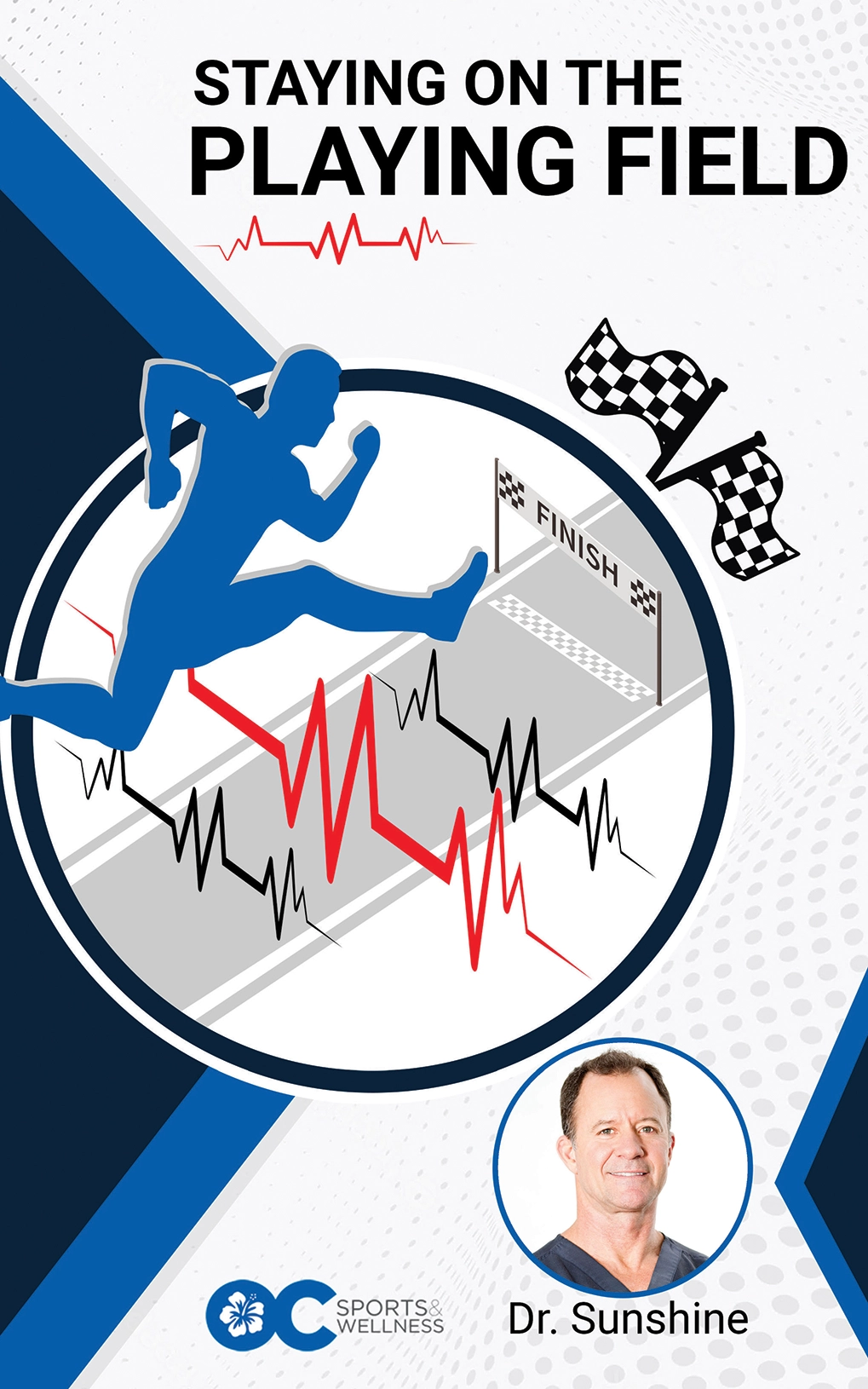Functional sports nutrition (FSN) is a groundbreaking approach that goes beyond traditional dietary practices and supplement regimes for athletes. Unlike conventional methods, FSN integrates insights from various disciplines such as Functional Medicine, Nutritional Therapy, and Clinical Nutrition. This holistic approach prioritizes individualized care, aiming to optimize health and performance through whole-body wellness.
Peak Performance with Functional Sports Nutrition (FSN)
Functional Sports Nutrition (FSN) merges the principles of Functional Medicine with athlete-centric precision. FSN delves deep into understanding each athlete’s unique physiology to optimize performance. Now you can elevate your health and vitality through wholesome nutrition. By nourishing your body with premium, whole foods, FSN corrects nutrient imbalances and restores gut health, paving the way for faster recovery and unprecedented victories. Say goodbye to overhyped, processed foods that hinder your potential. Embrace FSN and unleash your true athletic prowess.
At its core, FSN recognizes that athletes are unique individuals with distinct physiological needs. By addressing underlying imbalances and supporting key body systems, FSN aims to enhance athletic performance and overall well-being. This approach emphasizes the importance of achieving functional health before focusing on performance enhancement.
In contrast to the conventional sports nutrition model, which primarily focuses on meeting the nutritional demands of training, FSN recognizes three levels of dietary support: Functional Nutrition for Health, Performance Nutrition, and Supplements. Functional Nutrition for Health, as outlined by the Institute of Functional Medicine, addresses systemic imbalances that can affect athletic performance. This includes issues such as gut health, immune function, and hormonal balance.
Central to FSN is the concept of biochemical individuality, which acknowledges that athletes have unique responses to nutrition and training stimuli. This personalized approach is essential for optimizing performance and preventing issues like overtraining and fatigue.
FSN also recognizes the interconnectedness of body systems and the importance of addressing underlying imbalances comprehensively. This integrated model considers factors such as oxidative stress, inflammation, acid-alkaline balance, and energy pathways in assessing athlete health.
To support this approach, functional laboratory testing can provide valuable insights into individual biomarkers and imbalances. Tests such as the Metabolic Analysis Profile (MAP), Amino Acids, and Adrenal Stress Profile can help identify specific areas of concern and inform targeted interventions.
In addition to dietary recommendations, athletes may benefit from targeted supplementation to address specific needs identified through testing and assessment. This may include support for digestion, detoxification, adrenal function, and immune health.
Overall, functional sports nutrition represents a paradigm shift in how we approach athlete care. By embracing a holistic and individualized approach, FSN aims to elevate the standard of care and education in sports nutrition, ensuring that athletes receive the comprehensive support they need to excel in their endeavors.
FSN & The Power of Macros
A Guide to Understanding Nutrition in Food
When understanding nutrition, the concept of macros, short for macronutrients, is paramount. Macros encompass the three main categories of nutrients that provide energy to our bodies: carbohydrates, proteins, and fats. These macronutrients are crucial in fueling our bodies, supporting bodily functions, and influencing our overall health. Let’s delve deeper into macros and explore their significance in our diets.
Carbohydrates: Fuel for Energy
Carbohydrates are the body’s primary source of energy. Found in various foods such as grains, fruits, vegetables, and legumes, carbohydrates are broken down into glucose, which fuels our cells, tissues, and organs. There are two main types of carbohydrates: simple carbohydrates, which include sugars like glucose, fructose, and sucrose found in fruits, honey, and processed foods, and complex carbohydrates, which consist of starches and fiber found in whole grains, legumes, and vegetables.
While carbohydrates are essential for energy, not all carbs are equal. Simple carbohydrates, particularly those found in sugary snacks and beverages, can cause rapid spikes in blood sugar levels, leading to energy crashes and potential health issues like insulin resistance and weight gain. On the other hand, complex carbohydrates, thanks to their fiber content, are digested more slowly, providing a steady release of energy and promoting feelings of fullness and satiety.
Proteins: Building Blocks of Life
Proteins are crucial for building and repairing tissues, muscles, and organs. Composed of amino acids, proteins play a vital role in various bodily functions, including enzyme production, immune system support, and hormone regulation. While animal products like meat, poultry, fish, eggs, and dairy are rich protein sources, plant-based sources such as legumes, nuts, seeds, and tofu provide ample amounts of this essential nutrient.
Consuming adequate protein is essential for maintaining muscle mass, promoting recovery after exercise, and supporting overall health. Individuals engaged in intense physical activity or strength training may require higher protein intake to support muscle repair and growth. Additionally, including various protein sources in your diet ensures you receive diverse amino acids, as different foods contain different amino acid profiles.
Fats: Essential for Health
Contrary to popular belief, fats are not the enemy. They are essential for optimal health. Fats provide energy, support cell growth, protect organs, and absorb fat-soluble vitamins like A, D, E, and K. Fats contribute to hormone production and help regulate inflammation and brain function.
There are several types of fats, including saturated fats found in animal products and some plant oils, monounsaturated fats found in olive oil, avocados, and nuts, polyunsaturated fats found in fatty fish, flaxseeds, and walnuts, and trans fats found in processed and fried foods. While saturated and trans fats are often associated with an increased risk of heart disease and other health problems, unsaturated fats, mainly monounsaturated and polyunsaturated fats, have been linked to various health benefits, including improved heart health and cognitive function.
Balancing Macros for Optimal Nutrition
Achieving a balanced macros intake is vital to maintaining overall health and well-being. While individual macronutrient needs vary based on age, gender, activity level, and health status, a general guideline aims for a balanced diet of carbohydrates, proteins, and fats.
One approach to balancing macros is to follow a flexible dieting approach, where you track your macro intake to ensure you meet your nutritional needs while still enjoying various foods. This approach allows flexibility and customization based on personal preferences and goals, whether weight loss, muscle gain, or overall health improvement.
However, it’s important to remember that not all calories are equal. While tracking macros can be a valuable tool for optimizing nutrition, focusing solely on numbers can lead to an unhealthy relationship with food. Instead, prioritize nutrient-dense, whole foods that nourish your body and provide a wide range of vitamins, minerals, and phytonutrients.
Understanding macros is essential for making informed dietary choices and optimizing nutrition. Incorporating a balance of carbohydrates, proteins, and fats into your diet can fuel your body, support optimal health, and achieve your wellness goals. Remember to focus on whole, nutrient-dense foods, listen to your body’s hunger and fullness cues, and seek guidance from a qualified healthcare professional or registered dietitian if you have specific dietary concerns or goals.

We hope this information is helpful. At OC Sports and Wellness, we understand the importance of balancing your health amidst a busy lifestyle. We offer convenient options for scheduling visits, texting, or video chatting with Dr. Sunshine. Let’s talk and work towards your well-being! We invite you to reach out: 949-460-9111



